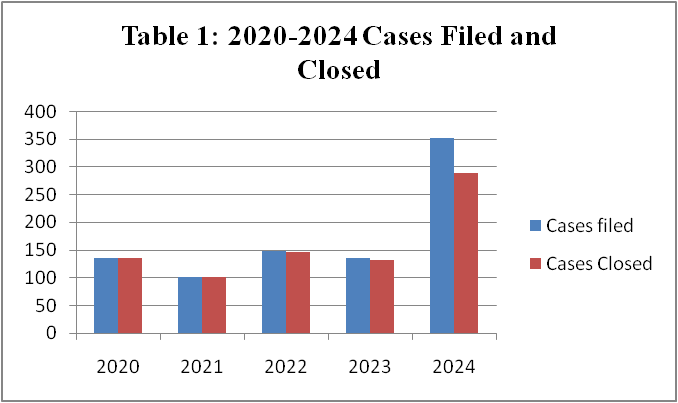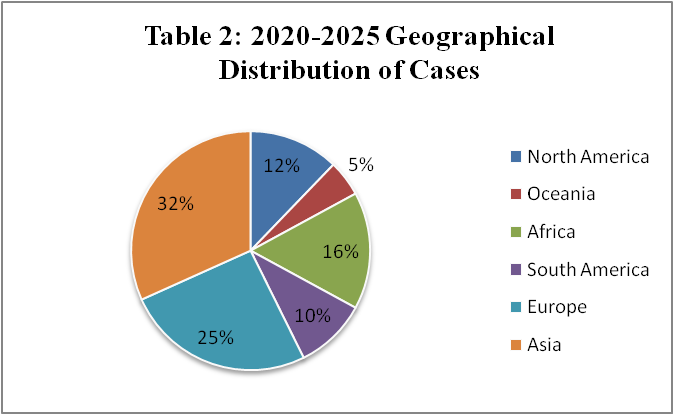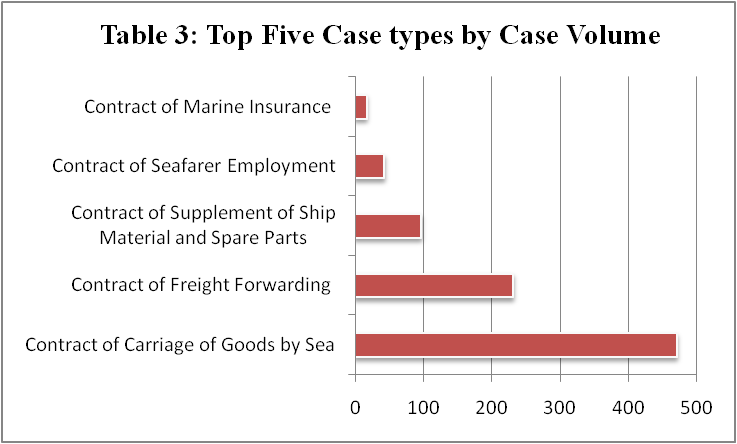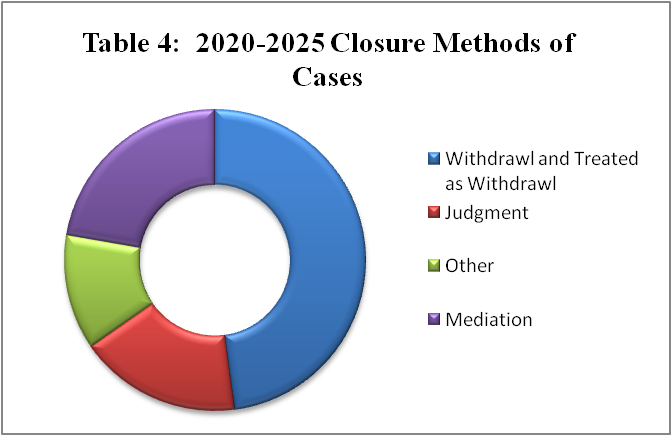Preface
General Secretary Xi Jinping has pointed out that “the rule of law advances hand in hand with opening-up; every step forward in opening-up must be accompanied by a corresponding step forward in the development of the rule of law in foreign-related matters.” Jiangsu Province is located at the intersection of several major national strategies, including the Belt and Road Initiative, the development of the Yangtze River Economic Belt, and the integrated development of the Yangtze River Delta. Openness is a defining feature of Jiangsu Province. Foreign and Hong Kong, Macao, Taiwan-related maritime adjudication is an important part of building the rule of law in foreign-related matters. It serves as a crucial platform for demonstrating China’s legal image, and articulate the stories of China’s rule of law. Guided by Xi Jinping Thought on Socialism with Chinese Characteristics for a New Era and deeply committed to Xi Jinping Thought on the Rule of Law, the Nanjing Maritime Court has kept in mind the nation’s top priorities, focused on its adjudicative responsibility, innovated working mechanisms, implemented a strategy for adjudicative excellence, and strengthened judicial capacity building. The credibility and international influence of maritime justice have been steadily enhanced.
This White Paper provides a comprehensive overview of the Nanjing Maritime Court’s adjudication work in foreign and Hong Kong, Macao, Taiwan-related cases since 2020, summarizes the experience in building a preferred venue for international maritime dispute resolution, and presents selected model cases. It aims to offer stronger maritime judicial services and safeguards to support high-level opening-up.
I. Basic Information and Characteristics of Foreign and Hong Kong, Macao, Taiwan-Related Cases
Between January 2020 and June 2025, a total of 1,079 new foreign and Hong Kong, Macao, Taiwan-related cases were filed in the Nanjing Maritime Court, with 863 cases closed. The number of newly filed cases has shown an upward trend year by year (Table 1), with a year-on-year increase of 155.15% in 2024. Among them, 850 were foreign-related cases and 229 were Hong Kong, Macao, and Taiwan-related cases. The total amount in dispute exceeded RMB 5.2 billion, accounting for 22% of the total amount in dispute for all newly filed cases during the same period.

Based on statistical analysis, these cases exhibit the following main characteristics:
(1) Cases Concerning Wide Geographical Coverage and Diverse Types
With Jiangsu’s increasing level of opening-up and the continuous development of the marine economy, the scope of maritime economic and trade activities has been expanding, and accordingly, the geographical coverage of the filed cases has continued to grow. From 2020 to 2025, the number of countries and regions involved in cases has expanded from 30 to 82, spanning five continents.

In terms of geographical distribution, Asia-related cases (56.63%) accounted for the largest share, mainly involving Singapore, South Korea, and Kazakhstan—countries along the Belt and Road, closely linked to Jiangsu’s strategic position as a hub of the Initiative. Cases related to the Americas (20.39%) primarily concerned developed countries or open-registry states such as the United States, Canada, and Panama; Europe-related cases (17.97%) mainly involved key port countries such as Germany, the Netherlands, and Greece. In recent years, there has been a marked increase in cases related to Africa, involving 13 countries including Liberia, Nigeria, and South Africa, reflecting the growing economic and trade exchanges between China and Africa (Table 2). Moreover, since the implementation of the Regional Comprehensive Economic Partnership (RCEP) Agreement in 2022, cases involving RCEP member states have continued to grow, with a year-on-year increase of 271% in 2024, accounting for 29.8% of all foreign and Hong Kong, Macao, Taiwan-related cases.
The cases before the Court involved a wide range of causes of action—59 in total—representing more than half of all maritime case types. The top five causes of action in terms of case volume were: disputes over contract of carriage of goods by sea, contract of freight forwarding, contract of the supplement of ship materials and spare parts, contract of seafarer employment, and contract of marine insurance (Table 3).

(2) Cases Spanning From Traditional Maritime Trade To Emerging Marine Economy Sectors
The marine economy is inherently outward-looking. Foreign and Hong Kong, Macao, Taiwan-related cases involving traditional maritime transportation industries—such as ocean shipping, shipping finance, freight forwarding, ship agency services, etc.—have consistently accounted for over 90% of all foreign-related cases. Notably, in recent years, digital technologies have driven the transformation and upgrading of traditional maritime transportation industries, resulting in a significant rise in cases involving new maritime business models. For example, cases involving cross-border e-commerce now account for 23% of cases of contract of freight forwarding.
Meanwhile, as Jiangsu accelerates the cultivation of new drivers for the marine economy and promotes the development of an international manufacturing cluster for high-tech ships and marine engineering equipment in the “Tong–Tai–Yang” area, there has been a growing number of cases related to emerging marine industries, including marine engineering equipment manufacturing, offshore wind power, and intelligent shipbuilding. Around 10% of such cases involve foreign or Hong Kong, Macao, Taiwan elements, often with large amounts in dispute. These cases tend to be more complex due to both their international nature and the technical standards for shipbuilding involved.
(3) Complex Cases Continuing Emerging
With the implementation of new foreign-related laws and regulations such as the Anti-Foreign Sanctions Law and the Foreign State Immunity Law, disputes involving foreign sanctions and state sovereignty immunity have already appeared in judicial practice. In 2024, the Nanjing Maritime Court accepted and concluded the national first civil tort case concerning the Anti-Foreign Sanctions Law. Such cases not only involve intricate legal issues but also bear on broader diplomatic considerations, posing significant challenges to the capacity of foreign-related maritime adjudication. Moreover, with the increasing frequency of international economic and trade exchanges as well as cross-border personnel movements, states are continuously expanding jurisdiction in civil and commercial matters, this has given rise to a growing number of cases concerning issues of international and interregional parallel proceedings, and the coordination between litigation and arbitration procedures, thereby placing higher demands on specialized adjudication.
(4) Cases Involving International Rules and Foreign Laws Increasing
From the perspective of applicable law, there has been a growing number of cases applying international conventions and practices. To date, 7 cases have involved the Convention on the International Regulations for Preventing Collisions at Sea, 1972 (COLREGs); one case has involved the Athens Convention Relating to the Carriage of Passengers and their Luggage by Sea, 1974; and 4 cases have involved the Convention on the Recognition and Enforcement of Foreign Arbitral Awards. International practices such as Incoterms and the International Maritime Dangerous Goods (IMDG) Code have also been frequently referred to in judicial practice.
Meanwhile, the number of cases requiring the ascertainment and application of foreign laws has also been increasing. In 7 cases, the court commissioned specialized legal institutions to ascertain foreign laws, concerning Mexican law and German law; in one case, the court terminated enforcement proceedings pursuant to an expert opinion on German law. In more than 10 cases, the court, either through parties’ assistance or on its own initiative, ascertained foreign statutes and case law—covering jurisdictions such as the United Kingdom, the Marshall Islands, South Africa, Chile, and the Hong Kong—thereby facilitating settlements between the parties.
(5) Needs for Special Maritime Procedures Diversifying
Foreign and Hong Kong, Macao, Taiwan-related cases often involve multiple cross-border parties and large amounts in dispute. Given the high mobility of ships, special maritime litigation procedures—characterized by their speed, effectiveness, and timeliness— have become an important procedural safeguard for parties in maritime disputes. About 10% of the foreign and Hong Kong, Macao, Taiwan-related cases filed in the Nanjing Maritime Court have involved special maritime procedures, including maritime injunctions, arrest of ships, maritime preservation measures before and during arbitration, preservation of maritime evidence, and procedure for public exigence, thereby providing judicial responses to the diverse needs of maritime dispute parties.
(6) Conciliation and Mediation Becoming the Primary Means of Dispute Resolution
Mediation is one of the most effective methods for resolving conflicts and disputes, offering advantages such as low cost, high efficiency, and great flexibility. In handling foreign and Hong Kong, Macao, Taiwan-related cases, the Nanjing Maritime Court has accurately grasped the parties’ emphasis on long-term cooperative relationships, promoting conciliation through mediation and aiming for the substantive and one-time resolution of disputes. Among the 863 concluded cases, nearly 70% were resolved through mediation or conciliation leading to withdrawal (Table 4), fully demonstrating the important role of the “Eastern Experience” in resolving maritime disputes and helping parties achieve mutual understanding and win-win outcomes.

II. Measures and Achievements in Foreign and Hong Kong, Macao, Taiwan-Related Adjudication
(1) Keeping in Mind the “Interests of the Nation” and Strengthening Maritime Judicial Services
Focusing on the development of the Belt and Road Initiative hub, the Court introduced 14 measures to enhance judicial services and safeguards for a higher level of opening-up, serving the creation of a globally influential two-way open hub. It was the first court nationwide to release 16 judicial initiatives to support the implementation of the Regional Comprehensive Economic Partnership (RCEP), with related experience promoted by the Supreme People’s Court. Targeting the strategy of upgrading pilot free trade zones (FTZs), the Court, together with the Jiangsu FTZ Office, Jiangsu Maritime Safety Administration, and Jiangsu Provincial Department of Transport, jointly issued Several Measures on Deepening Innovative Development of Maritime Logistics in the China (Jiangsu) Pilot Free Trade Zone, building a diversified dispute resolution model for maritime and commercial disputes in FTZs and enhancing institutional openness in the maritime logistics sector. In cooperation with the Jiangsu Provincial Development and Reform Commission, the Court co-compiled the Manual on Legal Risk Prevention for Enterprises, providing a toolkit for foreign trade and foreign-invested enterprises to prevent litigation risks and helping create a first-class, law-based business environment.
(2) Optimizing Litigation Services and Improving the Quality and Efficiency of Foreign-related Adjudication
To address the challenge of extraterritorial service, the Court formulated the Procedural Guidelines for the Service of Judicial Documents in Foreign and Hong Kong, Macao, Taiwan-related cases, standardizing service procedures, exploring electronic service methods, and improving the efficiency of serving documents in such cases, thereby reducing trial duration. To make litigation services more convenient, the Court has provided overseas parties with online identity verification and video witnessing services for powers of attorney, explored remote online hearings and evidence collection, and made full use of mechanisms such as general authorization for overseas parties and expedited ship arrest guarantee mechanism, thereby continuously improving litigation experiences for both Chinese and foreign parties. The Court has also strengthened diversified dispute resolution to achieve substantive dispute settlement. It has enhanced collaboration with organizations such as the China P&I Club and China Maritime Arbitration Commission in areas including foreign-related maritime preservation and dispute resolution, improved coordination and integration among litigation, arbitration, and mediation in international maritime dispute resolution, and facilitated the early resolution of 126 foreign-related maritime and commercial disputes. Additionally, the Court has strengthened the ascertainment and application of foreign laws by formulating procedural guidance, compiled related cases, adhered to the principle of court-led and litigant-assisted, leveraged the Supreme People’s Court’s platform of ascertainment of foreign law, and cooperated with universities and specialized institutions to ensure accurate and proper application of foreign laws. One case was selected as the first batch of typical cases on foreign law ascertainment by the Supreme People’s Court.
(3) Respecting Party Autonomy and Equally Protecting the Lawful Rights and Interests of Chinese and Foreign Parties
To ensure equal protection of the rights and interest of both Chinese and foreign parties, the Court fully respects and safeguards the parties’ choice of court, applicable law, and dispute resolution methods, as well as the equality in litigation status, litigation rights, application of law, and protection of law. The Court respects international rules and practices, adheres to the principle of pacta sunt servanda (“treaties must be observed”), and accurately interprets and applies international conventions and practices, thereby strengthening the stability and predictability of judicial decisions. In one case concerning collision liability between a Chinese ship and a Panamanian ship, the Court applied the Convention on the International Regulations for Preventing Collisions at Sea, 1972 (COLREGs) to correctly determine the obligations of both ships and reasonably apportion collision liability, with both parties accepting the judgment without appeal. To strengthen judicial support for arbitration, the Court lawfully supports and supervises arbitration, fairly adjudicates cases involving judicial review of arbitration, respects the independence of arbitration agreements, and provides judicial support for Chinese and foreign parties. In a dispute concerning voyage charter-party, the Court applied the Arbitration Ordinance of the Hong Kong Special Administrative Region to uphold the validity of an arbitration agreement even though no arbitration institution was specified, thereby supporting arbitration in dispute resolution and improving the judicial environment for maritime arbitration development.
(4) Pursuing Excellence in Adjudication and Actively Contributing to the Development of an International Maritime Judicial Center
To promote specialized adjudication, the Court has centralized the trial of foreign and Hong Kong, Macao, Taiwan-related cases, invited 60 experts in international shipping, trade, and related fields to join an expert advisory pool, and recommended experts to serve as people’s assessors, fully leveraging their expertise to ensure professionalism and fairness in judgments. Bearing in mind the strategy for adjudicative excellence, the Court published mind maps of exemplary cases and cultivated cases with international influence and rule-shaping significance. 12 cases have been included in the Case Databases of People’s Court, 26 cases were select as typical cases by the Supreme People’s Court or the High People’s Court of Jiangsu Province, and 3 cases have been published in the UK publisher Chinese Maritime and Commercial Law Reports. By continuously improving mechanisms and providing high-quality, efficient, and professional judicial services, the Court has attracted foreign parties in over 20 cases to actively choose or transfer jurisdiction to the Court, including four disputes with no substantial connection to China.
(5) Strengthening Cooperation and Exchanges to Enhance the International Influence of Maritime Justice
To expand channels for international exchanges, the Court has successfully hosted high-level academic conferences such as the Maritime Adjudication Symposium, the Yangtze River Economic Belt Multi-modal Transport Legislative Innovation Forum, and the Centennial Commemoration Round-table of the Hague Rules, addressing the needs for specialization and internationalization in maritime adjudication. The Court encourages judges participating in international seminars, such as the Global Coastal Forum and the China-Europe Railway Express International Cooperation Forum. 6 judges attended the international seminar on the Beijing Convention on the Judicial Sale of Ships (Convention on the International Effects of Judicial Sales of Ships). The Court has also dispatched judges for training and exchange in Germany and Hong Kong, and selected one judge assistant to work at the United Nations Office in Geneva. To Court has enriched the content of its Chinese and English websites, produced 13 episodes of the English-language program Voice of Maritime Court, and released bilingual white papers and cases, sharing the voice of Chinese maritime justice.
III. Outlook on Foreign and Hong Kong, Macao, Taiwan-Related Maritime Adjudication
First, focusing on the central mission and safeguarding higher-level opening-up on the track of the rule of law. We will promote and advance maritime adjudication will be within the overarching framework of both domestic and international imperatives, addressing the dual tasks of development and security. We will further align our thinking with General Secretary Xi Jinping’s important speeches on strengthening China as a maritime power, remain mindful of the “matters of national importance,” focus on the “five greater emphases,” and play a greater role in serving and safeguarding major national strategies such as the construction of the Belt and Road Initiative hub, the development of the Yangtze River Economic Belt, and the integrated development of the Yangtze River Delta, thereby contributing to a world-class, market-oriented, law-based, and internationalized business environment.
Second, upholding harmony between humanity and the ocean, and strengthening the protection of maritime rights and interests as well as the marine ecological environment. We will promote to implement national marine new energy policies, conduct research on cutting-edge topics, such as layered protection of marine rights and interests across different layers, for the continuous improvement of the legal framework for integrated marine development and protection. Efforts will be intensified to strengthen judicial protection of the marine ecological environment, explore alternative ways of marine restoration such as imposing liability of purchasing marine carbon credits, and improve the protection mechanisms for maritime rights and interests, thereby cultivating a legal environment where marine ecological conservation and the sustainable use of marine resources can strike a balance.
Third, aligning with international rules and building a preferred venue for international maritime dispute resolution. Adhering to the principles of equal protection of both Chinese and foreign parties, we will coordinate domestic and foreign-related rule of law, place greater emphasis on researching and applying international maritime rules, promote efficient and accurate application of foreign laws, and establish a case database for frequently ascertainment of foreign laws. More landmark cases with international influence and rule-shaping significance will be cultivated. We will promote to refine rules and practice on judicial review of arbitration, improve judicial mechanisms to assist arbitration preservation, foster an arbitration-friendly judicial environment, and establish a diversified dispute resolution mechanism that effectively offering parties low-cost and flexible dispute resolution options.
Fourth, articulating the story of maritime justice well and establishing China’s maritime judiciary discourse and narrative framework. We will advance the development of the Maritime Judicial Research Center of the Nanjing Maritime Court, with the goal of both “bringing in” and “promoting abroad.” By focusing on the dimensions of “legal significance, social impact, environmental sustainability, international demonstration, and humanistic care”, we aim to promote a maritime judicial research platform with global influence. Bilingual white papers on maritime adjudication and typical cases will be published regularly. We will also invite representatives, legislators, and figures from the international shipping community to visit courts for exchanges, enhancing the understanding and international communication of China’s maritime judicial system, legal concepts, and achievements, and comprehensively improving the global reach and impact of China’s maritime adjudication.
Fifth, taking a long-term perspective and enhancing the professionalism of the maritime adjudication. Talent selection, training mechanisms will be optimized to meet the diverse demands of international trade, international shipping, and environmental protection. A practice-oriented talent training mechanism will be improved, with deeper collaboration with universities to foster the high-level talent cultivation. Outstanding judges will continue to be selected for training and exchanges with international organizations and for participation in international rule-making, thereby broadening their global perspective and improving their overall competencies to provide solid talent support for the high-quality development of maritime adjudication.